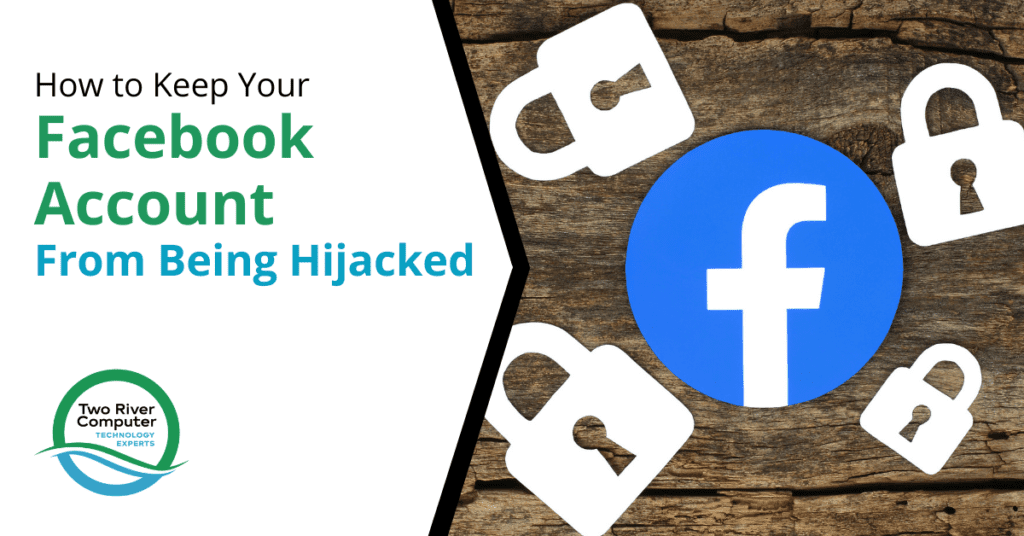
Unfortunately, many of the spaces that we like on the internet can also be some of the most dangerous when it comes to our privacy. Social media sites like Facebook are one of these.
Sixty-three percent of the U.S. population uses Facebook as a way to keep up with friends and family, market their business, or stay up to date on what’s happening in their community.
But legitimate users aren’t the only ones hanging out on Facebook. There are multiple nefarious types, hackers, opportunists, and stalkers that are also on the platform looking to take advantage of unprotected accounts. This has led to a common occurrence happening, which is having your Facebook account hijacked.
In April 2021, it was announced that 533 million Facebook users had their phone numbers and personal data leaked online.
The common scenario is that a user tries to log in to scroll their Facebook feed like usual and suddenly gets an incorrect password warning. They try to go through the normal password reset, but that doesn’t seem to work. A hacker has hijacked their account and changed the email address and phone number, meaning the user can’t even do a reset to regain access.
Having your social media account taken over and being locked out can be frustrating. Especially if the hijacker is impersonating you through posts or direct messages to your Facebook friends.
And for company accounts, it can be a big reputation hit if the hacker decides to try to scam some money from that company’s followers.
Facebook hijacking is all too common, and most of us have probably seen a frantic post at one time or another from someone we know warning that their account was hijacked and not to interact with it.
Why Do People Hijack Facebook Accounts?
What can someone gain by taking over a Facebook account? There are many different types of hijackers and reasons for account takeover. A few are personal, but most are simply criminals looking to phish or gain a financial benefit of some type.
Some of the reasons Facebook accounts are taken over include:
- Personal vendetta of an ex or enemy
- Someone doing it for some laughs
- To send phishing DMs to your Facebook friends with a malicious link
- To gather more personal account data that can be used to extort money from you
- To get personal data that can be sold on the Dark Web
Tips for Keeping Your Facebook Account Secure
Use a Strong Password
Use a password generator to create a strong password for your Facebook account rather than trying to choose something easy to remember. The longer, the better because longer passwords are more difficult to hack.
You also want to ensure you include a mix of letters, numbers, and symbols in the password.
Just Say “No” to Quizzes & Surveys
Those fun online quizzes like “What Peanuts Character Are You?” come at a high cost. A few minutes of seemingly innocent entertainment can be a scam that not only compromises your personal account details but those of your connected friends as well.
The Better Business Bureau has a scam alert out about Facebook quizzes and the fact that they can be a cover for mining your personal data. This data can then be fed into password cracking software to identify the most common password you might be using based on your interests.
For example, an algorithm could look at the name of your High School and try the mascot’s name as a possible Facebook password.
No matter how enticing they look, do not fall for Facebook quizzes.
Turn On Two-Factor Authentication
Protect your Facebook account by turning on two-factor authentication in your Security and Login Settings. This will keep someone that has your username and password from accessing your account and hijacking it.
To turn on two-factor authentication, follow these steps:
- Go to Security and Login Settings.
- Scroll down to Use two-factor authentication.
- Click Edit.
- Choose the security method you’d like to use and follow the on-screen prompts.
Be Wary About Social Phishing
Social phishing is when phishing attacks happen over social media. For example, a hacker could pose as a Facebook employee and ask you for your passwords to “confirm your account security.” Facebook employees will never ask you for your password.
Social phishing also takes the form of links that might show up in your feed that look strange, similar to phishing emails. For example, it might look like a post coming from a friend (either from a hijacked account or a copycat account) and just say “You need to check this out!” or “I can’t believe you allowed these pictures of you to be posted!”
Be wary of any posts like this designed to get you to click before you think. They can often take you to a phishing site that downloads spyware or another type of malware.
Keep Your PC and Online Accounts Properly Protected
Two River Computer works with residential and business clients in Fair Haven, NJ with the goal of helping them stay safe while enjoying the best that technology offers.
Contact us today for a free consultation. Call 732-747-0020 or reach us online.


